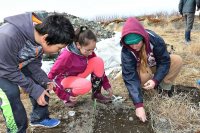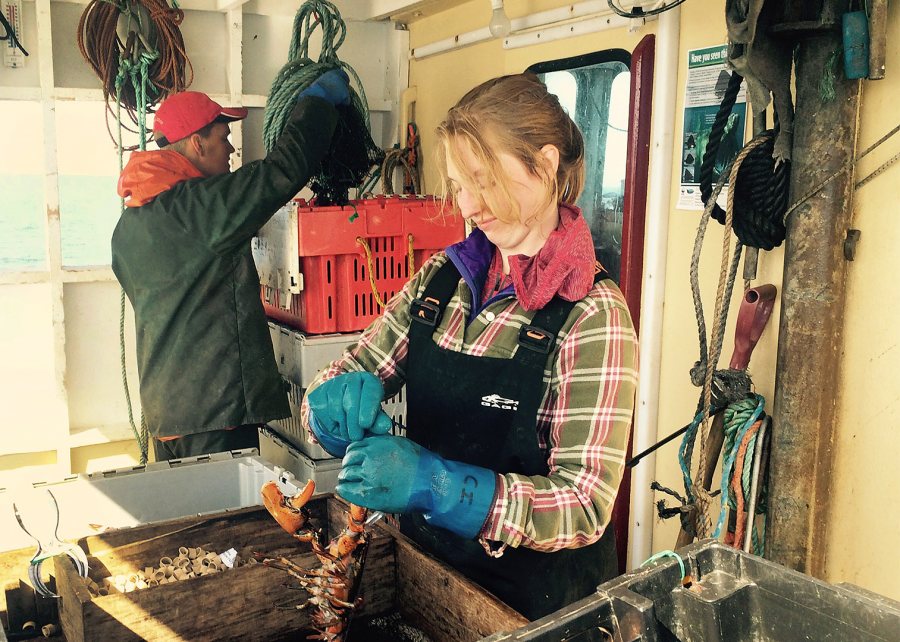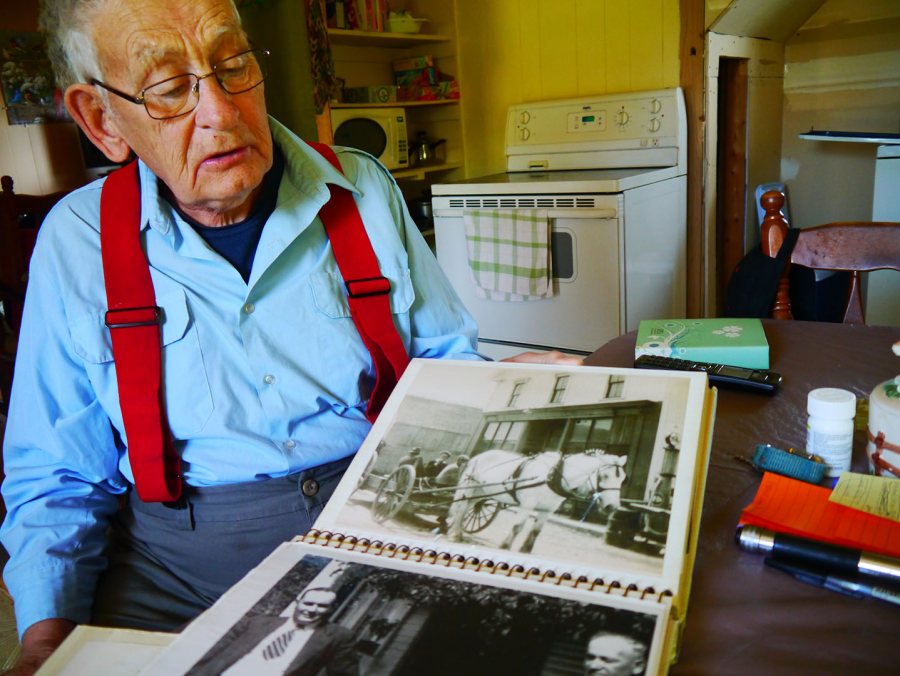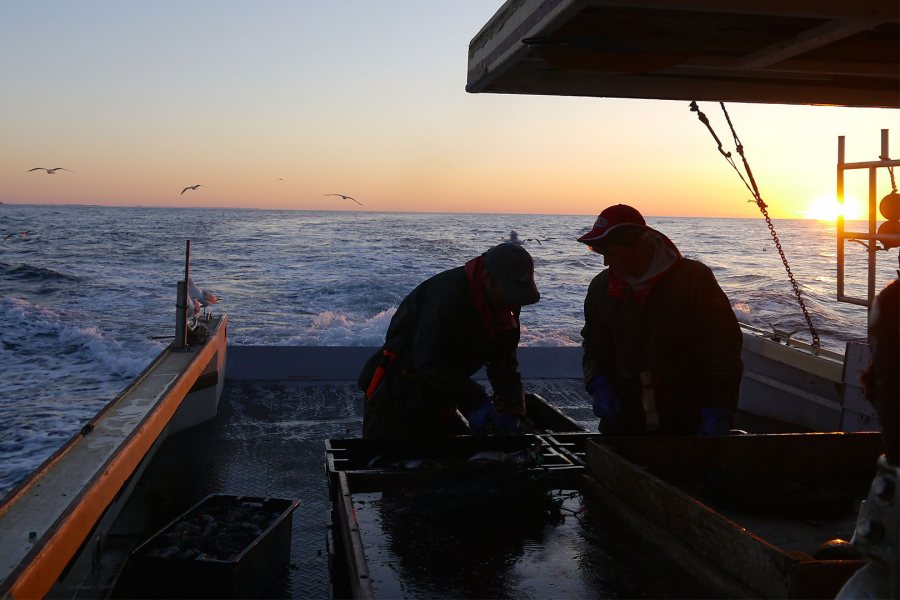
Summer Student Work: Kate McNally ’17 was ‘everybody’s student’ on Grand Manan Island
Here’s what it is like to spend the summer on a Bates-funded project to record oral histories of the fishing community on Grand Manan in New Brunswick, Canada.

In the waters off Grand Manan Island, Kate McNally ’17 bands lobsters on the fishing boat “Island Bound” in this photo taken by boat captain Russell Ingalls.
Name: Kate McNally ’17
Hometown: Deep River, Conn.
Major: Anthropology
Internship Sponsor: Otis Fellowship, providing grants of up to $6,000 for self-designed, innovative, and imaginative summer projects that address a student’s personal concern or interest in the natural world. In the fall, each fellow makes a public presentation to the campus community about the experience.
1. What was your project?
On the island of Grand Manan, in New Brunswick, I recorded oral histories of a fishing community that is in a state of cultural and economic flux.
The recordings of those interviews will contribute to community memory archived in the Grand Manan Museum and will form the basis for my own writing, in which I will reflect upon Grand Manan and its connection with the ocean.
2. Where did you live?
I lived and worked at Swallowtail Lighthouse. I also joined a lobster boat, which meant waking up very early to band lobsters
“On Grand Manan, I was everybody’s student.”
I did lighthouse repair and helped dulsers, people who gather dulse, a kind of seaweed, in the intertidal zone.
3. What have you learned?
First, you can do a lot when you put your mind to it. Second, strangers can be very kind, and quickly are strangers no longer — two very good things to learn if you hope to be a citizen of the world!
4. How did you use your anthropology major in this project?
In anthropology, you gain understanding of a place and a culture by finding people who can teach you about their lives and their perspectives.

Kate McNally ’17 photographed Bowlin Gaskill, a lifelong resident of the village of North Head on Grand Manan, as he participated in an oral history.
I find it inspiring to have teachers from every conceivable walk of life.
And on Grand Manan, I was everybody’s student.
I’ve also done biology coursework, so I was able to use my knowledge of the Gulf of Maine and Bay of Fundy ecosystem to ask the question as an anthropologist: “What does this mean to the people who live here?
5. During this project, how did you manage your own privilege as someone who can enter and leave this community at will?
I researched the history and culture of Grand Manan before my arrival, but that told me nothing about the lives of people living there now. I wanted to tell them that I wasn’t romantic, presumptive, insensitive, or ill-informed — but I simultaneously feared that all those words described me precisely.
Like many small, beautiful communities, Grand Manan is an incredibly tight year-round community and a tourist destination, too, so I was aware that I was treading an awkward line between the community and the tourists.
“Good things will happen that you didn’t expect — let them take you places!”
I dealt with that challenge in two ways. First, in oral history interviews I tried to listen honestly and wholeheartedly. Second, when I share my experience with the wider Bates community in the fall, I will emphasize the complexity of this place that tourists so often and simply call “whimsical.”
I think that these strategies are a reciprocal response to the respect and kindness that was paid to me here.
6. What would you tell a younger Bates student about the process of applying for a fellowship like this?
First, plan ahead. I started working getting information about the Otis Fellowship over a year before I applied, and every conversation helped me write my application.
Talk to members of the committee and previous fellows. Learn about the history and culture of the place you hope to go to, and don’t be afraid to email strangers!
Be comfortable with changing your plans. My fellowship was ever-evolving, right up until the last week.
Good things will happen that you didn’t expect — let them take you places! Frustrating things will happen that you didn’t expect. Think on them long enough to learn and reflect, but keep going.





